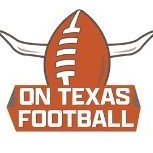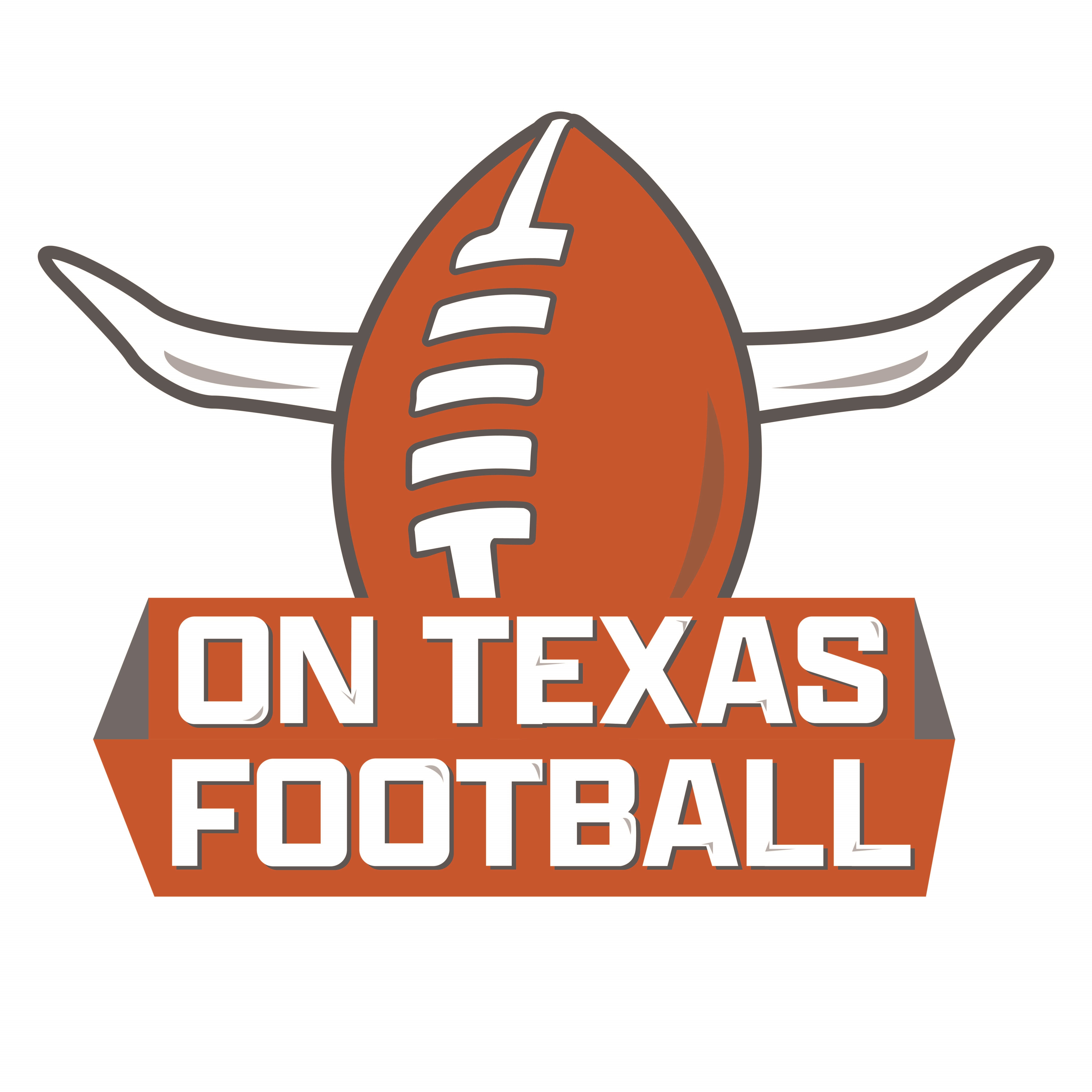All Activity
- Past hour
-
Tuesday - The Future of College Sports
CGG replied to Bobby Burton's topic in On Texas Football Forum
Bobby, thanks for the insight and perspective. I saw one of Cody Campbell’s ads this past weekend but didn’t know all the background behind it. -

Tuesday - The Future of College Sports
Rivalrygameblock replied to Bobby Burton's topic in On Texas Football Forum
If that kind of financial windfall is available, the SEC and Big Ten should and probably will pool their rights and keep the control. -

Tuesday - The Future of College Sports
Hashtag replied to Bobby Burton's topic in On Texas Football Forum
Cody campbell -

Tuesday - The Future of College Sports
Bobby Burton replied to Bobby Burton's topic in On Texas Football Forum
Who said they did deserve the same? -

Tuesday - The Future of College Sports
Bobby Burton replied to Bobby Burton's topic in On Texas Football Forum
By the way, everyone wants the PUF redistributed to their benefit and to the detriment of Texas. That is not news. That’s been going on since at least the 80s. -

Tuesday - The Future of College Sports
Joe Zura replied to Bobby Burton's topic in On Texas Football Forum
-

Tuesday - The Future of College Sports
Bobby Burton replied to Bobby Burton's topic in On Texas Football Forum
He’s not going to get the pooling done without the acquiescence of the SEC and Big 10. He just won’t get the votes. I’m guessing he knows that quite well. That means negotiation of future rev share must be on the table and I doubt the SEC or Big 10 would be willing to be shortchanged in that regard. In other words, all of what you said can be true, but there still may be a deal to be had that makes sense. No one’s motives should be altruistic here, not his, not Texas’, no one’s. -
Tuesday - The Future of College Sports
Johnny Bevo replied to Bobby Burton's topic in On Texas Football Forum
Just like Tech legislators want to redistribute PUF money benefitting Tech to the detriment of Texas, he wants to redistribute SEC/Big conference TV money, benefitting Tech at the expense of those conferences. He knows with his personal NIL spending, if he can level the conference money field he’ll finally have the advantage over the SEC and Big schools. The rest is just his rationalization. There is a reason he doesn’t explain his actual position in his ads. -

Tuesday - The Future of College Sports
Bobby Burton replied to Bobby Burton's topic in On Texas Football Forum
Texas leadership is not asleep at the wheel. They are well aware of the fundamentals. The chair of the board of regents at Texas has a firm grasp on this IMO. -
Tuesday - The Future of College Sports
Stuey22 replied to Bobby Burton's topic in On Texas Football Forum
Campbell can support his school and have the best interest of college athletics as a priority. Both can be true. He is right, this model isn't sustainable nor is it good for college athletics. His biggest problem will be attempting an intellectual conversations with college football fans...its like arguing with an emotional brick wall. -

Tuesday - The Future of College Sports
Hashtag replied to Bobby Burton's topic in On Texas Football Forum
Sorry to tell you this but if you think Cody Campbell is doing this for greater good and not for his personal or techs benefit then I’ll sell you some ocean front property in Arizona. Media rights shouldn’t be equal and pay shouldn’t be equal at all. No matter if it brings in more money or not. Tech doesn’t deserve the same media value as Texas full stop. That’s also not very capitalistic I’d say -

Tuesday - The Future of College Sports
Bobby Burton replied to Bobby Burton's topic in On Texas Football Forum
Sorry to tell you this, but Tech is gonna have a seat at the table whether Texas fans want them to or think they should. After all, they’ve had a seat for 50+ years, they just haven’t done much with it. That’s reality. Tech isn’t going anywhere. -

Tuesday - The Future of College Sports
MBHORNSFAN replied to Bobby Burton's topic in On Texas Football Forum
That is fair and I believe we do have the leadership in place now to make sure we are in a good spot. The move to the SEC proved that. -

Tuesday - The Future of College Sports
Threepacballer replied to Bobby Burton's topic in On Texas Football Forum
Bobby Good points. Glad you are able to speak to prominent people and present their thoughts to us. We all need to learn to listen to all points of view. Thanks for this. -

Tuesday - The Future of College Sports
Bobby Burton replied to Bobby Burton's topic in On Texas Football Forum
I don’t think he makes any pretense here about his desire to make Texas Tech the best it can be. But I also think he’s willing to have a negotiation if it means bringing $7bn more to bear on an annual basis. What if UT got an extra $100m of that share? $100m would be a 1/70th share. What if Texas could negotiate even more? -

Tuesday - The Future of College Sports
Hashtag replied to Bobby Burton's topic in On Texas Football Forum
Cody Campbell isn’t trying to create more money for everyone. He’s trying to ensure tech has a seat at the table and that they continue to free load off programs superior to them. He’s trying to ensure he doesn’t have to continue footing as much of Techs bill as possible. He’s doing it in true American fashion by purchasing legislation. -

Tuesday - The Future of College Sports
Bobby Burton replied to Bobby Burton's topic in On Texas Football Forum
Not if socialism creates more money. Then it’s capitalism. I assure you, the NFL is not socialism. -
-

Tuesday - The Future of College Sports
Hashtag replied to Bobby Burton's topic in On Texas Football Forum
Exactly, with this he’d not have to put so much of his own money. He wants tech to be piggy backed like they’ve always been but not any longer since the Big 12 is no longer a nationally relevant conference. He’s trying to make it where the future they will be automatically included in it. -

Tuesday - The Future of College Sports
MBHORNSFAN replied to Bobby Burton's topic in On Texas Football Forum
I am dubious on Campbells true intentions here. IMO he is looking our for Tech and I would prefer him or anyone else not dictating the future for the University of Texas. -

Tuesday - The Future of College Sports
Hashtag replied to Bobby Burton's topic in On Texas Football Forum
Cody Campbell supports socialism. -
The issues facing college sports are so vast and so varied, it’s hard for anyone to truly grasp each aspect and the interplay between all of them. Yet no person is trying to alter its future (or at least guide it) more than Cody Campbell, the chairman of the Texas Tech board of regents. For those unaware, Campbell is a native Texan who played football for Mike Leach at Tech and then entered the professional world as an oil and gas man, eventually becoming a billionaire several times over. I spoke to Campbell, who has been running national TV advertisements for two weeks opposing the Score Act during college football games, yesterday evening. At the crux of Campbell’s argument are several vital suppositions: 1. College sports is a public trust. The people (you and I, and every other fan out there) own the assets since most of the universities are taxpayer funded or state-owned. Sure, there are private schools like Harvard, SMU or Rice sprinkled in. But Texans effectively own UT, A&M, Tech, etc. In fact, most of college football nation-wide is comprised of large state universities. For example, 15 of the 16 schools in the SEC are public entities. So as owners of these universities, the public’s interest should come first. That’s important because it deals with us - every single one of us - being stewards of the opportunities for future generations of students, whether that’s football, rowing, basketball, softball, baseball, volleyball, etc. 2. Campbell believes the current system is financially unsustainable for way too many colleges. Most schools rely on football and basketball to prop up revenue for the rest of their athletic department. But if some schools can no longer compete at the highest level in those two sports, their revenue will dwindle. The concern is that Olympic sports will be cut either at the outset or eventually in a futile attempt to fund the revenue-makers. The hardships, according to Campbell, are creating what amounts to a financial death spiral for college sports as we know it. 3. Players deserve a real seat at the table. The current involvement of student athletes in NCAA committees is both minimal and largely performative. If there are two players and 10 beauracrats on a committee, who is anyone really listening to? ** So what is Campbell actually proposing? First, he’s trying to tackle the financial issue. Campbell believes that TV and media rights holders are getting a steal. College football is by all accounts the second most popular sport in America behind only the NFL. Yet college sports media rights (all sports, not just football) are sold for less than half of what the fourth most popular sport (the NBA) receives. According to Campbell, college sports receives approximately $5bn per year in media rights agreements from its various partners. The NBA, a less popular sport, by contrast is in the $10bn range. How does that occur? Market segmentation. College football rights are sold in piecemeal fashion. The SEC does its own deal with ESPN. The Big 10, the Big 12, etc., all do the same. Campbell believes, and he says consultants back these claims, if college football pooled its rights together, instead of working separately, that there would effectively be an additional $7bn in financial value created annually (or $70bn over a 10-year time frame). College sports would go from making $5bn a year to $12bn, thus being justly paid for being the second most popular sport. And that extra cash could be used to not only keep giving opportunities to all sports at all levels, it could also pay athletes their fair share of NIL. On the surface, that sounds like a financial windfall, and a healthy plan for all. But some, like the SEC and Big 10, likely think they would be carrying too much of the weight of other conferences. Why should Texas or Ohio State prop up Fresno State? Well, Campbell is not naive. He doesn’t think all parties should be treated the same in every single aspect. He said obviously some schools or conferences might share disproportionately in the additional money that media pooling would provide. And that’s where the negotiating would and should begin in Campbell’s mind. Surely, the Big 12 will ask for more money than the SEC thinks the Big 12 deserves. And vice versa. Just like the conferences have jockeyed for guaranteed slots in an expanded college football playoff. Campbell seems to welcome the negotiation on those topics. But he can’t do that unless (or until) the Sports Broadcasting Act of 1961 is repealed or amended. ** Outside of the financial value brought about by the pooling of media rights, Campbell also believes there are other benefits to be gained by a repealing of the broadcast act. He thinks college football could then exert more control over the future of the game rather than ceding too much of that to the TV networks. The NFL is seen as a forward-thinking league who controls its media partners whereas college football is largely seen as a reactive one where the networks define the sport. In college football, the tail wags the dog way too often. Things such as times of games, match-ups, etc., could be easily altered. For example, should Texas really be playing a 2:30 game at home in late August just because TV execs say so? ** Campbell believes financial change is just one part of the long-term solution to college sports. He believes there should be a parallel push for a new governing body other than the NCAA. The NCAA is “painfully beauracratic”, he says. For example, he says they recently reduced the number of subcommittees to rule on an issue from roughly 90 to down to 30. Thirty subcommittees? Good luck getting everyone on board in a timely manner. No wonder it took the NCAA 3+ years and millions of dollars to deal with something as clear cut as the Michigan sign-stealing scandal. As part of a new governance, there should be true athlete representation and negotiation. That representation would cover everything from salary cap, to bargaining rights, scholarship minimums for all sports, and everything in between. ** Campbell’s argument is sound and well thought out. But it is concerning to the two major players in college football - the SEC and Big 10. Both of those leagues would likely have to cede some of their control over league members and their ability to negotiate their own TV deals to a pooled-party. Despite the potential financial windfall, the loss of control (or the threat of it) may be a bridge too far for the SEC or Big 10. So that is why college sports is stuck. College football is a great sport but it’s unable to effectively define its own future because too many folks want to protect their piece of the pie. ** Solutions must be negotiated. Here’s a potential financial solution: If the pooling of money could create an additional $7bn in revenue, why not apportion the additional revenue on the same pro rata basis as current TV networks do? Would that work? Is that enough to keep not just the football team afloat but also the volleyball team at Fresno State fully funded? Is that enough to make NIL legitimate at Texas, Ohio State and Texas Tech in football and basketball? I don’t know. But at least it’s a starting point for a discussion. Whatever rout this takes, we know that rules need to be changed. And convention needs to be challenged. Some smart folks need to get in a room and figure it out, not just keep kicking the can down the road. ** To be clear, I’m not taking sides with Campbell, the SEC or the Big 10 here. I simply want what’s best for college sports for the long term. And what is that in my mind? Not reducing opportunities for students across the country, increasing athlete representation, and exerting control over networks in the interest of what is best for the game and the universities. The goals sound so simple. How do we get there is the issue. ** Thanks to Cody Campbell for his willingness to discuss this topic. View full news story
-
The issues facing college sports are so vast and so varied, it’s hard for anyone to truly grasp each aspect and the interplay between all of them. Yet no person is trying to alter its future (or at least guide it) more than Cody Campbell, the chairman of the Texas Tech board of regents. For those unaware, Campbell is a native Texan who played football for Mike Leach at Tech and then entered the professional world as an oil and gas man, eventually becoming a billionaire several times over. I spoke to Campbell, who has been running national TV advertisements for two weeks opposing the Score Act during college football games, yesterday evening. At the crux of Campbell’s argument are several vital suppositions: 1. College sports is a public trust. The people (you and I, and every other fan out there) own the assets since most of the universities are taxpayer funded or state-owned. Sure, there are private schools like Harvard, SMU or Rice sprinkled in. But Texans effectively own UT, A&M, Tech, etc. In fact, most of college football nation-wide is comprised of large state universities. For example, 15 of the 16 schools in the SEC are public entities. So as owners of these universities, the public’s interest should come first. That’s important because it deals with us - every single one of us - being stewards of the opportunities for future generations of students, whether that’s football, rowing, basketball, softball, baseball, volleyball, etc. 2. Campbell believes the current system is financially unsustainable for way too many colleges. Most schools rely on football and basketball to prop up revenue for the rest of their athletic department. But if some schools can no longer compete at the highest level in those two sports, their revenue will dwindle. The concern is that Olympic sports will be cut either at the outset or eventually in a futile attempt to fund the revenue-makers. The hardships, according to Campbell, are creating what amounts to a financial death spiral for college sports as we know it. 3. Players deserve a real seat at the table. The current involvement of student athletes in NCAA committees is both minimal and largely performative. If there are two players and 10 beauracrats on a committee, who is anyone really listening to? ** So what is Campbell actually proposing? First, he’s trying to tackle the financial issue. Campbell believes that TV and media rights holders are getting a steal. College football is by all accounts the second most popular sport in America behind only the NFL. Yet college sports media rights (all sports, not just football) are sold for less than half of what the fourth most popular sport (the NBA) receives. According to Campbell, college sports receives approximately $5bn per year in media rights agreements from its various partners. The NBA, a less popular sport, by contrast is in the $10bn range. How does that occur? Market segmentation. College football rights are sold in piecemeal fashion. The SEC does its own deal with ESPN. The Big 10, the Big 12, etc., all do the same. Campbell believes, and he says consultants back these claims, if college football pooled its rights together, instead of working separately, that there would effectively be an additional $7bn in financial value created annually (or $70bn over a 10-year time frame). College sports would go from making $5bn a year to $12bn, thus being justly paid for being the second most popular sport. And that extra cash could be used to not only keep giving opportunities to all sports at all levels, it could also pay athletes their fair share of NIL. On the surface, that sounds like a financial windfall, and a healthy plan for all. But some, like the SEC and Big 10, likely think they would be carrying too much of the weight of other conferences. Why should Texas or Ohio State prop up Fresno State? Well, Campbell is not naive. He doesn’t think all parties should be treated the same in every single aspect. He said obviously some schools or conferences might share disproportionately in the additional money that media pooling would provide. And that’s where the negotiating would and should begin in Campbell’s mind. Surely, the Big 12 will ask for more money than the SEC thinks the Big 12 deserves. And vice versa. Just like the conferences have jockeyed for guaranteed slots in an expanded college football playoff. Campbell seems to welcome the negotiation on those topics. But he can’t do that unless (or until) the Sports Broadcasting Act of 1961 is repealed or amended. ** Outside of the financial value brought about by the pooling of media rights, Campbell also believes there are other benefits to be gained by a repealing of the broadcast act. He thinks college football could then exert more control over the future of the game rather than ceding too much of that to the TV networks. The NFL is seen as a forward-thinking league who controls its media partners whereas college football is largely seen as a reactive one where the networks define the sport. In college football, the tail wags the dog way too often. Things such as times of games, match-ups, etc., could be easily altered. For example, should Texas really be playing a 2:30 game at home in late August just because TV execs say so? ** Campbell believes financial change is just one part of the long-term solution to college sports. He believes there should be a parallel push for a new governing body other than the NCAA. The NCAA is “painfully beauracratic”, he says. For example, he says they recently reduced the number of subcommittees to rule on an issue from roughly 90 to down to 30. Thirty subcommittees? Good luck getting everyone on board in a timely manner. No wonder it took the NCAA 3+ years and millions of dollars to deal with something as clear cut as the Michigan sign-stealing scandal. As part of a new governance, there should be true athlete representation and negotiation. That representation would cover everything from salary cap, to bargaining rights, scholarship minimums for all sports, and everything in between. ** Campbell’s argument is sound and well thought out. But it is concerning to the two major players in college football - the SEC and Big 10. Both of those leagues would likely have to cede some of their control over league members and their ability to negotiate their own TV deals to a pooled-party. Despite the potential financial windfall, the loss of control (or the threat of it) may be a bridge too far for the SEC or Big 10. So that is why college sports is stuck. College football is a great sport but it’s unable to effectively define its own future because too many folks want to protect their piece of the pie. ** Solutions must be negotiated. Here’s a potential financial solution: If the pooling of money could create an additional $7bn in revenue, why not apportion the additional revenue on the same pro rata basis as current TV networks do? Would that work? Is that enough to keep not just the football team afloat but also the volleyball team at Fresno State fully funded? Is that enough to make NIL legitimate at Texas, Ohio State and Texas Tech in football and basketball? I don’t know. But at least it’s a starting point for a discussion. Whatever rout this takes, we know that rules need to be changed. And convention needs to be challenged. Some smart folks need to get in a room and figure it out, not just keep kicking the can down the road. ** To be clear, I’m not taking sides with Campbell, the SEC or the Big 10 here. I simply want what’s best for college sports for the long term. And what is that in my mind? Not reducing opportunities for students across the country, increasing athlete representation, and exerting control over networks in the interest of what is best for the game and the universities. The goals sound so simple. How do we get there is the issue. ** Thanks to Cody Campbell for his willingness to discuss this topic.
-

Random CFB Facts For Week Three
Blake Munroe replied to Blake Munroe's topic in On Texas Football Forum
@Joe Zura in shambles over this post. -

Random CFB Facts For Week Three
Blake Munroe replied to Blake Munroe's topic in On Texas Football Forum






